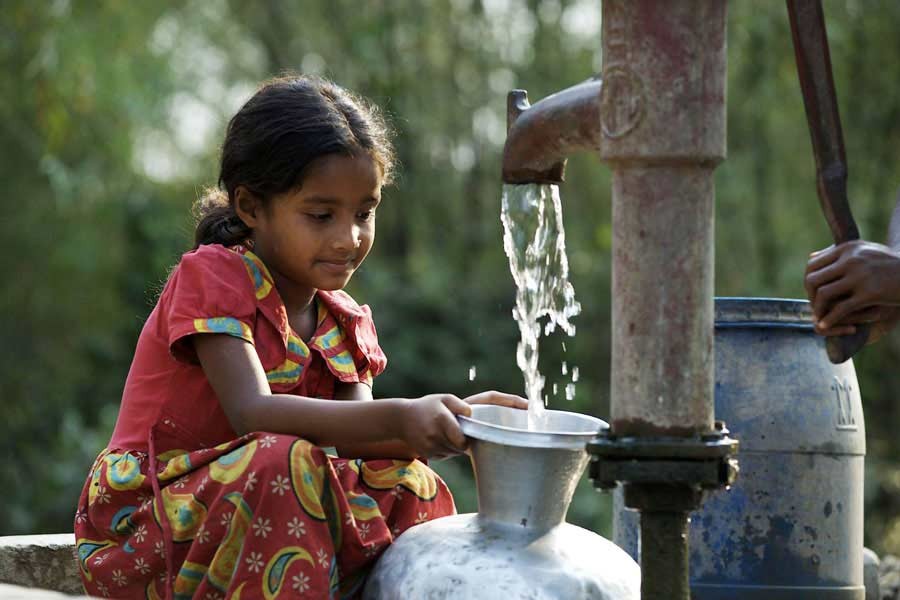

There is no denying that waterborne diseases like cholera, diarrhoea and typhoid pose a threat to physical wellbeing of children and adults alike in Bangladesh. According to an estimate, every year, 272,000 premature deaths occur simply because the victims lack access to safe drinking water. That means, unsafe water, poor sanitation and hygiene, in short, WASH, continues to remain a big challenge for the policymakers in the government demanding timely intervention with necessary budgetary allocations. But recent reports in this regard are indeed disappointing. In this connection, a coalition of civil society organisations, namely, Power and Participation Research Centre (PPRC), Water Aid, Fresh Water Action Network South Asia, Water for All and so on recently held a press conference expressing concern over the declining fiscal interventions, that is, budgetary allocations in these critical areas of human development.
The trend actually threatens the country's progress towards achieving sustainable development goals that include ensuring clean water and sanitation for all. In the proposed Annual Development Programme (ADP) for the fiscal year (FY) 2025-26, for instance, WASH allocations have dropped from Tk. 182.28 billion in FY 2022-23 to Tk 109.01 billion. However, the proposed amount for FY 26 is slightly higher than the current fiscal's revised ADP allocation at Tk.91.41 billion. Even so, the next fiscal's budgetary commitment for WASH is far below what is required to meet the challenges. Worse yet, whatever fiscal commitment for WASH is being made by the government is being tainted by a discriminatory approach to distribution of the fund among the different recipients. The Dhaka Water and Sewage Authority (WASA), for example, is slated to receive a larger portion of the allocation at Tk.31.4 billion than the Department of Public Health Engineering (DPHE), which is supposed to provide WASH services across the country. The city corporations, who are also important candidates for WASH allocations, are witnessing inequities since only seven out of all the 12 city corporations of the country are going to receive WASH allocations. Disparities also persist within intra-urban allocations. Apart from that, disparities are pronounced between urban and rural areas so far as WASH-related public investments are concerned.
Such negative approach is also evident in the vital areas of gender and social inclusion. In fact, the problem does not lie simply with curtailing of fund allocation for WASH. It has also to do with the mindset of the policymakers who set the priorities for budgetary allocation among different sectors.
On this particular issue, the head of PPRC, one of the concerned private organisations at a press briefing held recently emphasised that water and sanitation were not issues of merely technical nature. On the contrary, they are very much within the domain of fundamental human rights that encompass the citizens' essential health, dignity and resilience. In that case, the PPRC chief stressed that budgetary framework should reflect the importance of Water Supply and Sanitation when the impacts of climate change is worsening with attendant deepening of social inequalities.
Now, it is not only the poorer allocations for the health and sanitation in the national budget that is the main cause of concern. International assistance for the WASH sector, too, has experienced a sharp decline recently. The USAID, which provided USD371 million in FY 24 for Bangladesh, has dropped to USD164 million in 2025. As a result, some programmes supporting health care, clean water, disaster response, education, etc., had to be shut down. So, it is time the government concentrated more on mobilizing internal resources with concomitant increase in budgetary allocations to ensure the citizens' basic rights including clean water, sanitation and hygiene (WASH).


 For all latest news, follow The Financial Express Google News channel.
For all latest news, follow The Financial Express Google News channel.